
Contested Constitutions: A Microcosm of post-Arab Spring Divisions
Five years after Mohamed Bouazizi’s self-immolation in Sidi Bouzid, Tunisia ignited the Arab Spring. Yet while it inspired hope for democratic transition across the Middle East and North Africa, the region continues to be embroiled in civil war, terrorist networks, and crises of political legitimacy. In Syria and Bahrain, dictators used violence to thwart protests, leading to a prolonged civil war in Syria. In Yemen, despite the dictator’s negotiated transfer of power, rival sectarians are vying for power. In Tunisia and Egypt, dictators stepped down without much bloodshed. Lastly, in Libya, rebels overthrew the dictator with foreign military aid, but soon succumbed to factional warfare. This article will explore the interlude of democratic or semi-democratic politics in Tunisia, Egypt and …
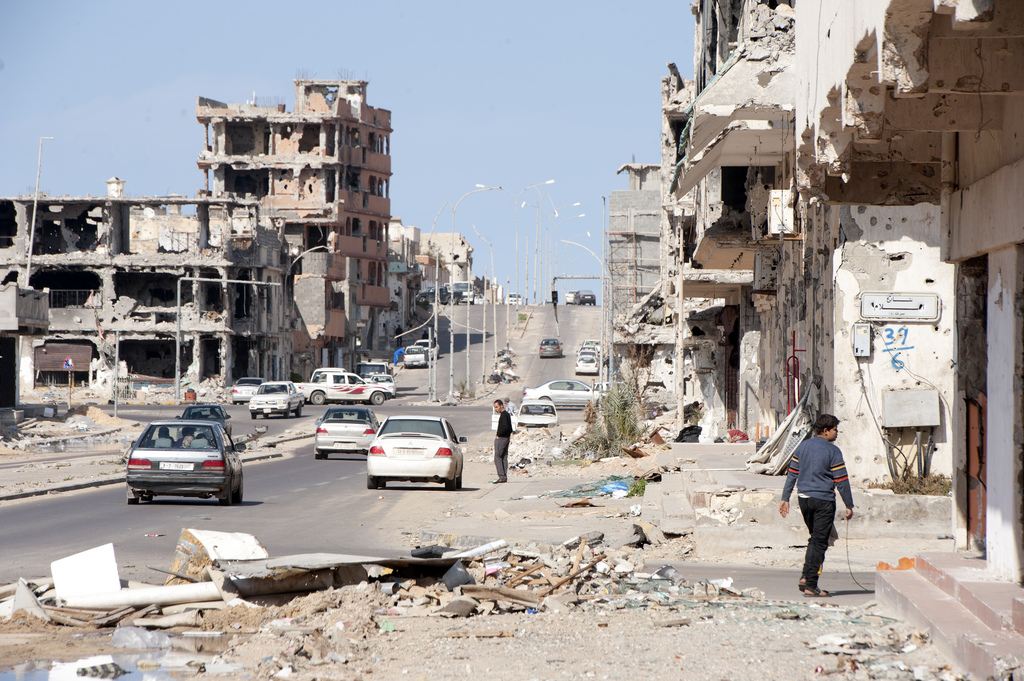
The Enemy Next Door? ISIL, Libya and Proto-State Actors
One more disaster in North Africa – News about the fall of Sirte to ISIL (Islamic State of Iraq and the Levant) has produced little reverberations across the Mediterranean. While there seems to be concerns about it, they are mostly about unrest happening “there” and, thus, fortress Europe can only force more measures to fortify itself and make sure that unrest remains where it is. Needless to say, anti-immigration debates continue to be loud, and are largely informed by a worldview at odds with itself, in which host communities are pitted against a deluge of immigrants – a burden on the economy and a marching in of an inflexible and alien culture. The reasoning is as follows: This is not “our” problem; it is “theirs”. The myopia of ownership and the shortsightedness of this view cannot be overstated. ISIL may be a short-term disaster but, more importantly, it is a long-term problem, and not only for North Africa.
The map of North Africa is rapidly changing and the unrest is not geographically bound – To begin with, it is believed that many of the terrorist groups are, in fact, getting their orders from within the depths of Europe. The world is not as divided as it used to be and modern warfare is less about the smuggling of weapons and more about the spread of ideas. So, what is to be done? In this article, I argue that the unrest in North Africa is far from North Africa-bound and that the failure of governments and sopra state bodies to coordinate will lead to an expansion of the chaos. Europe must look inwards – Immediate shifts in the discourse and intervention modalities are needed to address an unfolding crisis.
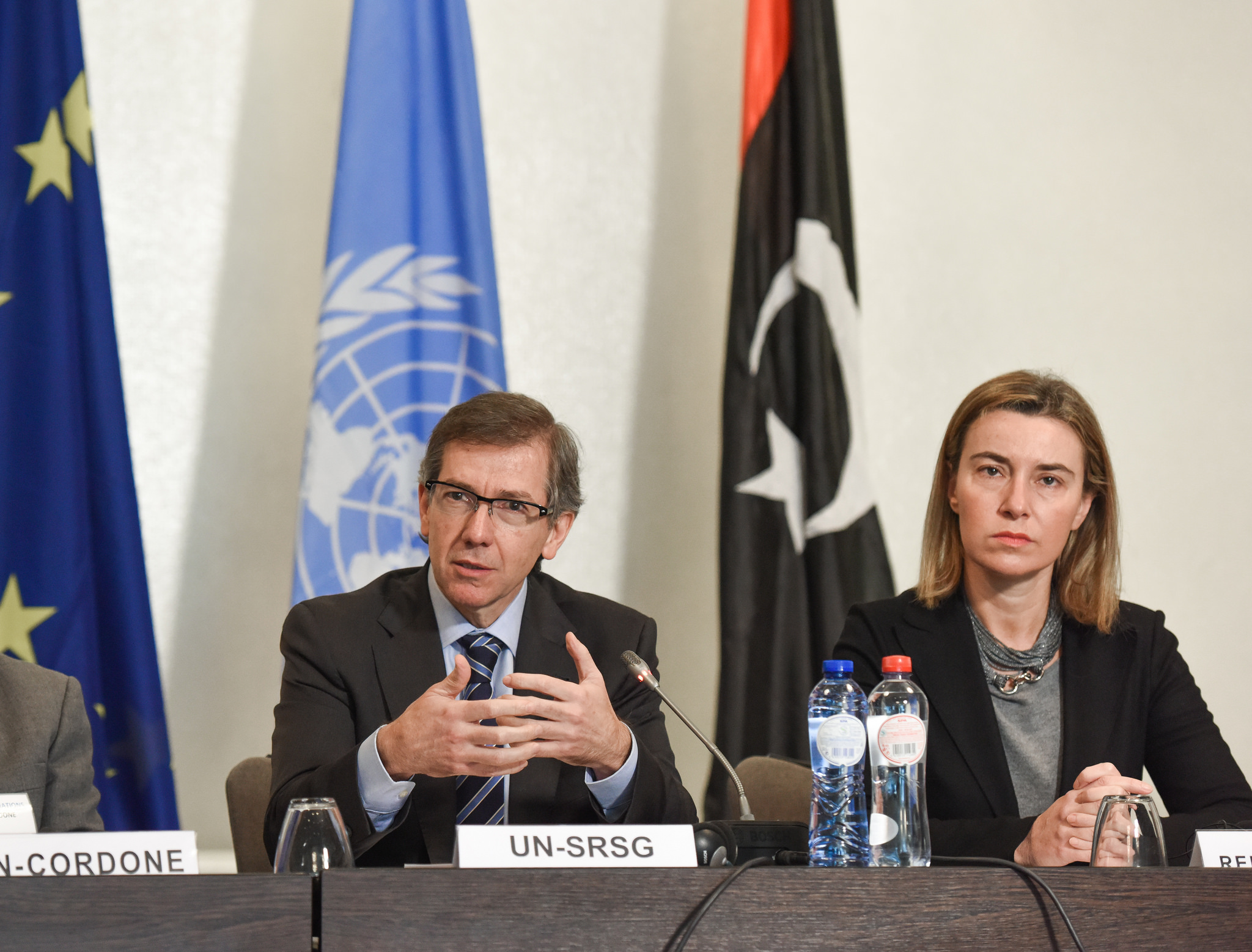
How the international community failed Libya
The international community has failed Libya. While this may come across as a harsh verdict to the many organizations, governments and individuals, sometimes well-meaning, who since 2011 have been flocking in and out of the country in an attempt to secure its transition to state-hood, it is the case that many of those transactions remained confined to the surface of Libya’s socio-political transition. One still remembers the high hopes of 2011. Libya, with the largest oil reserves in Africa, was well-positioned to launch a new era unlike its neighbors, Egypt and Tunisia, who had mounting economic and structural challenges to address. In Egypt, between 2004 and 2010, there were more than 3,000 labor actions, between protests and strikes, mobilized against a baggage of old anti-democratic and intricately corrupt state structures in what came to be called the “deep state”.[i] Libya was deemed to have none of that “depth”. But did it? Is it true that Libya, with no known institutional history, possessed none of the complexities of its neighbors? This article will reflect on some of the aspects of that invisible complexity.
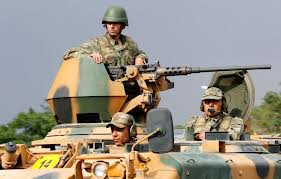
IR Analysis: The Arab awakening has sparked a foreign policy shift in Turkey and Qatar
The Arab awakening arguably represents the most important transformation of Middle Eastern politics since the end of colonialism. How will the regional powers adjust their foreign policies to the new regional environment is however still extremely uncertain. This uncertainty is partially due to the well-known inability of international relations scholars to make assured predictions, but also to the fact that the dynamics of foreign policy shifts are still widely overlooked and generally misunderstood in the scientific literature. Is ‘foreign policy change’ a mere adaptation to changes taking place in the domestic arena, as argued by most IR liberals? Or is foreign policy behaviour wholly dependent on the international distribution of power, as argued by realists? Or is there room for autonomous decisions that are not only reactions to exogenous sources of change, but are purposive and proactive actions in their own right?
The Arab awakening will most likely be a crucial case study to test each of these hypotheses.
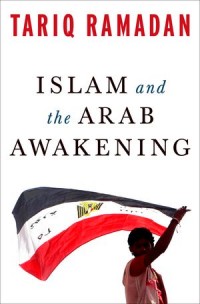
Islam and the Arab Awakening: Five things we should know about the Libyan and Egyptian demonstrations
We must start first by condemning the violence and killing of diplomats and civilian people. Whatever we may feel, however we may be hurt by the video, it cannot justify in any way the killing of people. Such actions are simply anti-Islamic and against Muslim values. The demonstrations were in fact first organised by a tiny group of Salafi literalists who were attempting to direct popular emotions against the United States and the West in order to gain for themselves a central religious and political role.
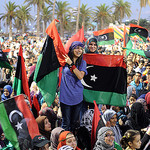
Winning the Peace: Libya’s transition is still perilous, but there is reason for hope
Libya’s outgoing Prime Minister, Adurrahim al-Keib, stated recently that “we are seeing the birth of a new Libya that is as beautiful as the waves of the sea.” Yet, given the enormous task of building a new democracy from scratch — and the equally immense economic, ethnic and political problems plaguing the new state — those waves belie turbulent currents.
ICC Captive Is Pawn in Struggle between Militias and the NTC
The key fault lines dividing the interim Libyan central government from both the militias and the international community are starkly illustrated in the ongoing saga surrounding the detention of four International Criminal Court (ICC) officials in Libya since June 7th. Among the detainees, Melinda Taylor has received the brunt of media attention, because she is a young and attractive Australian lawyer who was assigned by the ICC to represent the deposed dictator’s son, Saif al-Islam al-Qadhafi. She is currently being held captive by Zintani militiamen for ‘spying’. She allegedly possessed a digital pen camera and passed her client encrypted messages from Mohammad Ismael — a former crony of Saif’s, wanted for war crimes. It will likely be impossible for the …
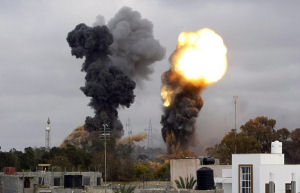
Which Entity is the Government of Libya and Why does it Matter?
In the past couple of days, Germany and Canada have joined the group of countries that have declared that they consider the National Transitional Council (NTC) in to be the “legitimate representative” of the Libyan people. But what exactly does this mean? According to the BBC, the group of countries extending this recognition includes France, the UK, Italy, Spain, Germany, the UAE, Qatar, Jordan, Gambia, Senegal and Australia. Russia and the United States have had meetings with the NTC and have also made similar declarations about the illegitimacy of the Gaddafi regime and about the legitimacy of the NTC (see previous post by Stefan Talmon on the US position in March). What are the legal implications, if any, of these …









